
Our series continues with a warm-hearted character-driven racetrack comedy out of step with the times in which it arrived
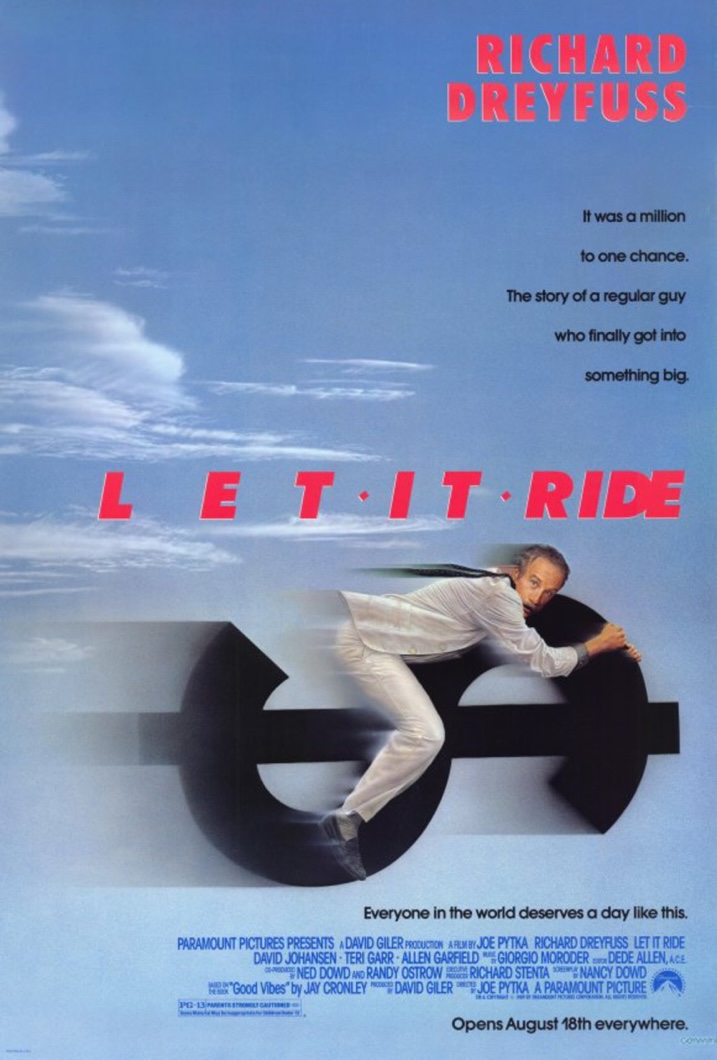 Let It Ride (1989)
Let It Ride (1989)
directed by Joe Pytka; starring Richard Dreyfuss, Teri Garr, Jennifer Tilly, David Johansen
The director had never before shot a feature film. The screenwriter hid her credit behind a pseudonym. The studio had no idea how to market a good-natured, character-driven comedy when the movie public was being bombarded by Indiana Jones, Batman, and a little mermaid.
All that, and 35 years after its debut Let It Ride remains a bullet-proof, gold-plated classic, as long as you don’t stray too far from a racetrack to ask.
Pity the filmmakers who launched Let It Ride into a movie market that had just suffered through two of the worst racetrack movies ever committed to celluloid, both filmed at Hollywood Park.
The Longshot (1986) was supposed to be comedian Tim Conway’s light-hearted, horseplayer’s valentine to a sport that welcomed his presence as an occasional owner and full-time advocate. Even with Conway sidekick Harvey Korman along for the ride, The Longshot took its subject matter as a running joke and its audience for idiots.
Two years later, along came Hot to Trot, about which the less that’s said the better. John Candy is the voice of a talking horse. Bobcat Goldthwait is who the horse talks to. At some point, Gilbert Gottfried shows up. Rotten Tomatoes gives it a 0% rating based on 16 critic reviews. Zero.
Twice burned, why should anyone think the reaction to Let It Ride would be any different? The benefit of the doubt gets a movie only so far, even with Oscar winner Richard Dreyfuss in the lead, coming off such entertaining comedies as Down and Out in Beverly Hills and Moon Over Parador.
Teri Garr, though more than a decade removed from Close Encounters of the Third Kind and Young Frankenstein, still was providing moments of sheer delight whenever she showed up on screen. And for support, there were familiar character actors galore, including Robbie Coltrane, David Johansen, Allen Garfield, and, in all her ditzy glory, Jennifer Tilly.
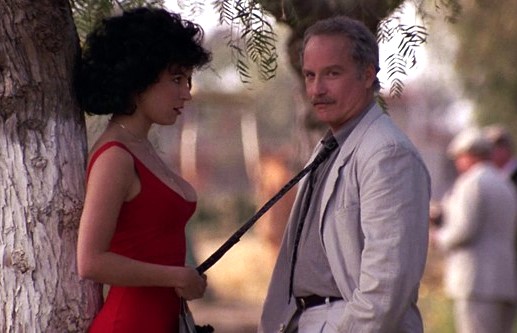 Critics were understandably confused. The care with which Let It Ride is staged and shot at gorgeous Hialeah Park is hardly surprising.
Critics were understandably confused. The care with which Let It Ride is staged and shot at gorgeous Hialeah Park is hardly surprising.
Award-winning commercials
Joe Pytka, the director, was known for his music videos with the likes of Michael Jackson and his award-winning commercials and public service spots; the “Your brain on drugs” anti-narcotics fried egg was Pytka’s. He got Giorgio Moroder, Blondie’s producer, for the music, and Oscar-nominated Dede Allen for the editing. Her credits included Bonnie and Clyde, The Hustler and Dog Day Afternoon.
Stir in the famously independent screenwriter Nancy Dowd, an Oscar winner for Coming Home, who used the name Ernest Morton for her adaptation of a Jay Cronley novel called Good Vibes. Cronley, a diehard horseplayer and newspaper columnist for the Tulsa World, was pals with Ned Dowd, Nancy’s brother. The script was picked up by Paramount, Pytka was attached, and they were off to the races.
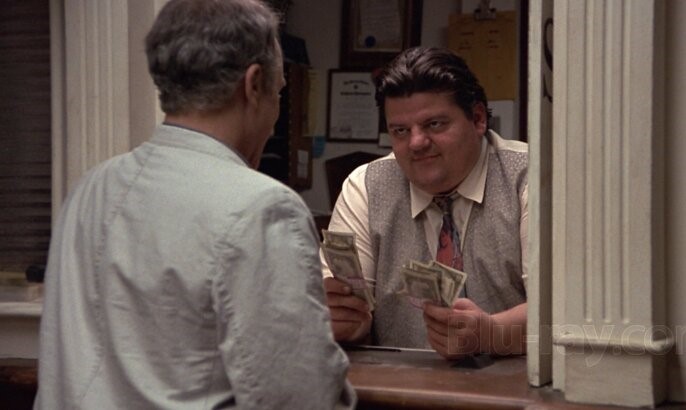 Cronley’s protagonist is Trotter, a scuffling cabbie whose flashes of worldly wisdom are sabotaged by a habitual losing streak at the track. But on this day he cannot lose. The Dowds gave him Jay as a first name in honor of the author, which I thought was wise.
Cronley’s protagonist is Trotter, a scuffling cabbie whose flashes of worldly wisdom are sabotaged by a habitual losing streak at the track. But on this day he cannot lose. The Dowds gave him Jay as a first name in honor of the author, which I thought was wise.
Dreyfuss plays Trotter with the whole scale, from arm-waving, shoe-chewing manic to righteously defensive, especially in the face of bad karma delivered by Looney (Johansen) and the low rent gamblers with names like Vibes, Quinella and Tony Cheeseburger who infest the local racetrack tavern.
“I got a bad feeling …” Looney says as the horses enter the gate for their first play of the day.
“No no no,” Trotter says, cutting him off. “In order to have a bad feeling you got to have had a good feeling, so you have no frame of reference.”
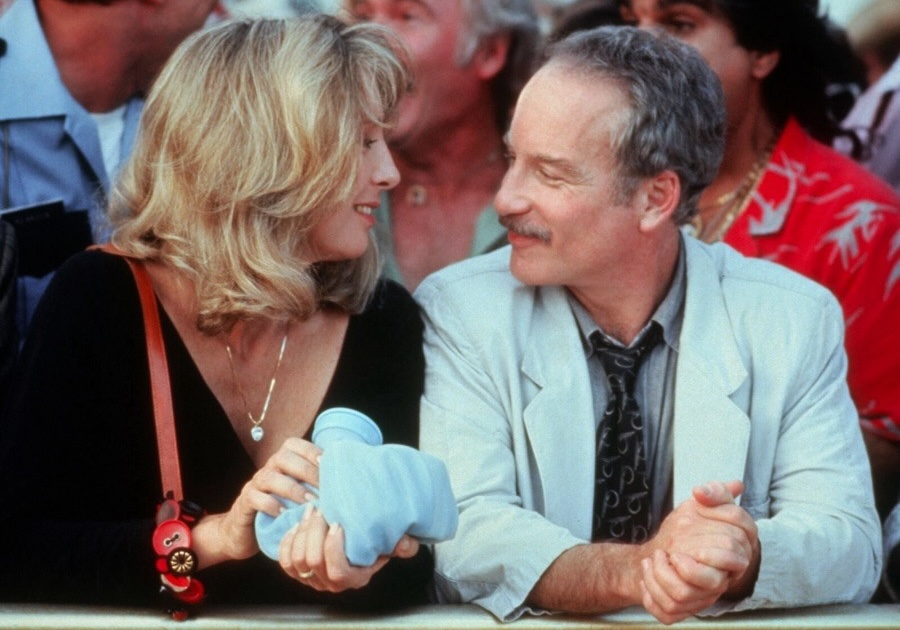 Over the next hour or so, Let It Ride brims with a series of set pieces so deeply familiar to racetrack denizens that the best lines have become sanctified:
Over the next hour or so, Let It Ride brims with a series of set pieces so deeply familiar to racetrack denizens that the best lines have become sanctified:
“The only reason I won is because you didn’t bet.”
“Some people like to rub me for luck.”
“There’s all kinds of balls …” (pause) “And one of his is crystal.”
A very good day
The ultimate aphorism is delivered by Trotter while breaking the third wall to address every horseplayer who has ever dreamed of such a moment in the pari-mutuel sun. For emphasis, Tilly is nearby, barely clinging to her mini-dress as he quietly declares:
“Am I having a good day or what?”
There is not much handicapping in Let It Ride. Mostly, Trotter’s picks during his incredible run are denigrated as ridiculous, and rightfully so, since they are based on:
A name dropped during an overheard conversation that suggested a horse had been set up for a score.
A tip from the same source overheard in that conversation.
An informal poll of fellow horseplayers eliminating their choices until one name remains.
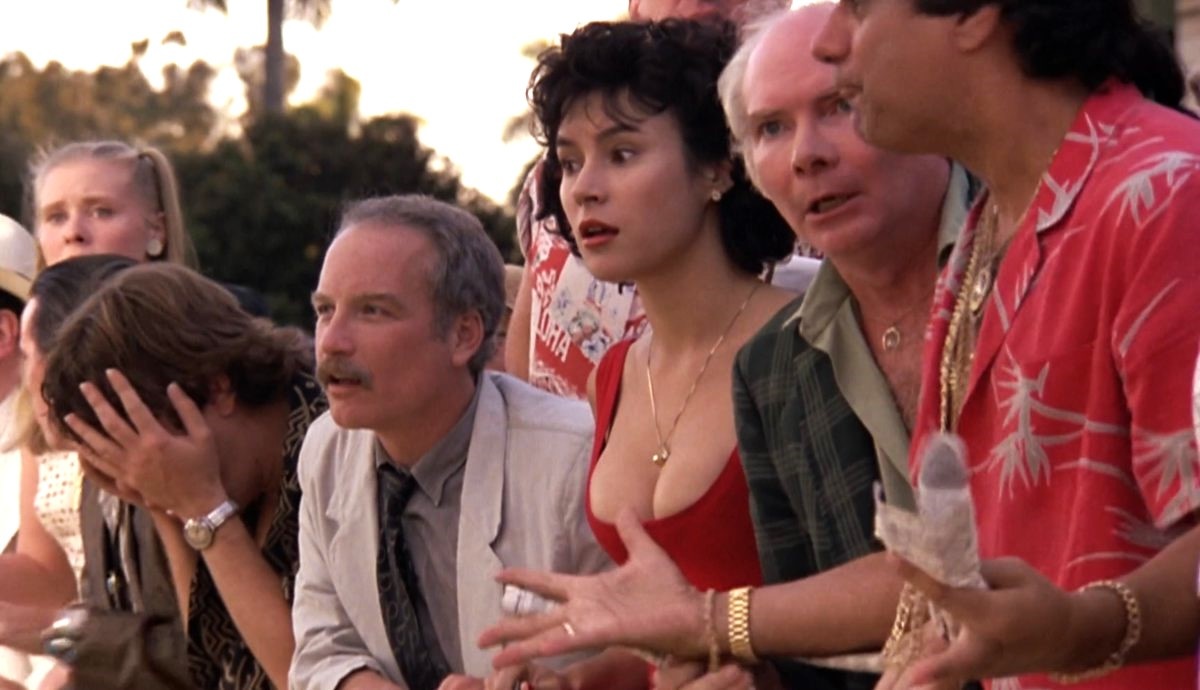 Trotter is also shut out on betting a “sure thing” that loses its rider while in front just yards from the finish. If nothing else, this proves a true horseplayer was behind the story. He gets the final piece of his giddy parlay from a horse that winked. His name, in a sly nod, is Hot-To-Trot.
Trotter is also shut out on betting a “sure thing” that loses its rider while in front just yards from the finish. If nothing else, this proves a true horseplayer was behind the story. He gets the final piece of his giddy parlay from a horse that winked. His name, in a sly nod, is Hot-To-Trot.
Helpless movie critics did not know what to do with Let It Ride. It was a box-office flop, which gave cynics a wedge to scorn its tightly wrapped world of racing as too foreign for even semi-mass consumption, while snarking at the director’s commercial pedigree.
“Let It Ride looks like it was vastly overshot and overwritten, then whittled down to something which resembles a movie but is really a long commercial for the joys of the racetrack.” Johanna SteinmetzChicago Tribune.
“Pytka may know how to push fizzy water, but he certainly can’t make a punch line sparkle.” Susan WlosczynaUSA Today.
Stephen Holden wrote in the New York Times that the movie was “so witless and confused in tone that its seedy racetrack clientele only emerge as dim, inarticulate cartoons.”
But Kevin Thomas of the Los Angeles Times got it. “You’re reminded of vintage Hawks and Wilder and Sturges,” Thomas wrote, “of the Hollywood Golden Era comedies that sparkle timelessly because their makers didn’t take themselves too seriously.”
Guilty pleasures
And on a 1992 episode of Siskel & Ebert, Gene Siskel singled out Let It Ride as one of his guilty pleasures.
“I like going to the racetrack myself, and I thought that would make it tougher for me to like Let It Ride because I would s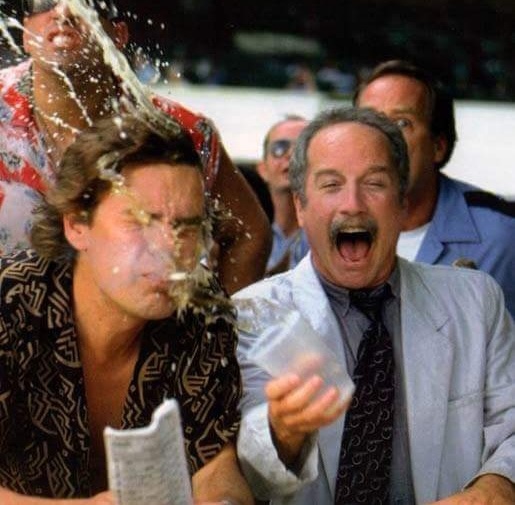 it there and find all the technical mistakes in the picture,” Siskel said.
it there and find all the technical mistakes in the picture,” Siskel said.
“But that wasn’t my experience at all. I thought it was funny and dreamy and much to my surprise I was pretty much alone as a film critic on that score.”
Ebert confessed he’d never seen it, which is strange, because one of his best friends was Bill Nack, author of the ultimate Secretariat biography.
More recently, in his film blog Nathan Rabin’s Happy Place, the host was full of praise for Let It Ride but added that it has had “nothing in the way of a cult following”.
This would be news to Dan Delgado.
Delgado is the creator and host of The Industry with Dan Delgado, described as a “podcast about overlooked movie history”. He makes good on that promise with deep dives into such subjects as ‘Unmade Hitchcock’, ‘The Suppression of Citizen Kane’, and ‘Bruce Lee and Bruceploitation’.
Somehow, Delgado found time to spin off a companion podcast that amounts to a scene-by-scene appreciation of Let It Ride over 36 episodes and featuring such familiar racing personalities as Billy Koch, Jason Beem, Steve Byk, and Andrew Champagne, all laying bare their abject devotion to the film. Delgado even includes a 2006 interview with Jay Cronley, who died in 2017.
“Let’s face it, there’s not a lot of movies about horseplayers,” Delgado said. “Since the story was written by Jay Cronley, a re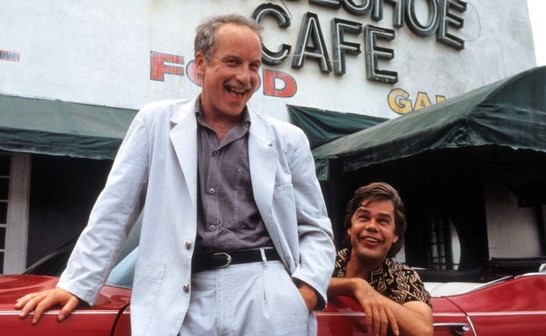 al horseplayer who saw all these people at the track, the movie continues to be very relatable. In fact, part of the fun of going to the track is people-watching, and looking for the guys who could have been in Let It Ride.
al horseplayer who saw all these people at the track, the movie continues to be very relatable. In fact, part of the fun of going to the track is people-watching, and looking for the guys who could have been in Let It Ride.
“And it’s endlessly quotable,” Delgado added. “I named all the episodes after what I thought was the best line from the scenes.”
Even so, the movie’s ultimate authority must have a favorite.
“I do,” Delgado replied. “Toward the end, they’re all at the bar celebrating Trotter’s great day. Cheeseburger speaks up and says, ‘And don’t worry, because we’ll all be here to pick you up when it’s over!’ For me, that says it all, because they knew it was going to end, and they’d still be there for him.”
• Let It Ride is available on a variety of streaming services. The viewer also is urged to sign up with hoopladigital.com that links a vast catalog of film through libraries. Then, like every card-carrying racetracker, there’s my original DVD.
• Read all Jay Hovdey's features in his Favorite Racehorses series
View the latest TRC Global Rankings for horses / jockeys / trainers / sires


